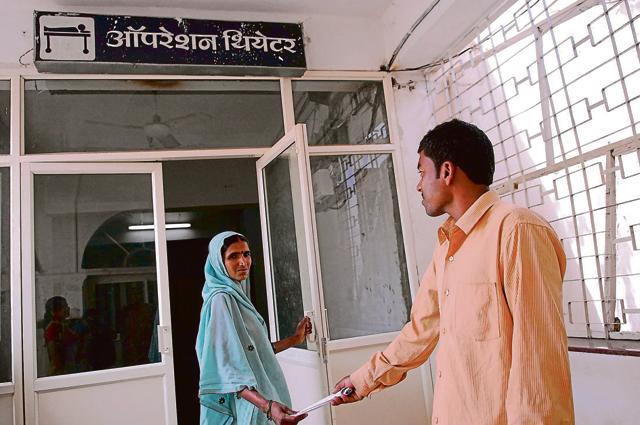Condoms, oral pills not the first choice of Raj couples
More people opting for IUD and postpartum intrauterine contraceptive device for birth control
Couples in Rajasthan prefer intrauterine device (IUD) and postpartum intrauterine contraception device (PPIUCD) as contraceptive methods rather than sterilization, condoms and oral contraceptive pills, the latest data compiled by the state health department has revealed.

The department has recorded a lower level of achievement (ELA) in sterilisation, oral contraceptive and condoms against the targeted achievement during 2015-16, the data collected in the last two years, has reveled.
Looking to the decline in the ELA, the state health department has decided to conduct a study about the changing preferences of couples while choosing family planning options, , said Dr VK Mathur, state director of family welfare department.
“Family planning managers at the seven divisional headquarters have been asked to conduct a study to find reasons for the changing preference,” he said.
With more options available today, couples have a wider choice to choose from an array of contraceptive methods, including condoms, oral contraceptive pills, pregnancy testing kits, emergency contraceptive pills, copper-T, tubal rings, and contraceptive injection.
“The study will tell about the changing preferences among couples,” he said.
“We have to ensure accessibility, availability of family planning means by creating awareness, counselling and emphasizing on spacing methods.”
“The Centre has made Bollywood actor Amitabh Bachchan the brand ambassador for family planning and we are hopeful that the actor will inspire people to adopt family planning means,” he said.
Family planning interventions play a major role in reducing the infant mortality rate and maternal mortality rate in the state, Mathur said, adding that spacing or having less children will result in a better life for both the mother and child.
He further said that couples should preferably have a child two years after marriage and have a gap of three years between two children.
The government is in the process of launching “e-sadhan”, web-based contraceptive logistic management information system that will monitor the supply chain on a real-time basis to reduce supply imbalances and regulate the flow of contraceptives at different levels, he said.
“We expect a better ELA in the use of family planning methods among the people in the state during the current fiscal as accredited social health activists (ASHAs) will be supplying the birth control materials to people and will monitor the process through e-sadhan, which will be launched in the next two months.”
Incentive
Men who undergo sterilisation get a compensation of Rs 2,000, while the motivator gets an incentive of Rs 300, women getting sterilised gets Rs 1,400 and motivator gets Rs 200.
Women who undergo postpartum sterilisation get Rs 2,200 as compensation and a motivator gets Rs 300. In case of postpartum intrauterine contraceptive device, the service providers (doctors and paramedical staff) get Rs 150.





